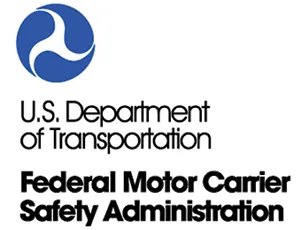Senior Reporter
FMCSA Issues Notice of Sexual Assault Enforcement Policy

[Stay on top of transportation news: Get TTNews in your inbox.]
The Federal Motor Carrier Safety Administration has issued a notice of enforcement policy for felony to remind state courts and state driver licensing agencies that federal regulations require disqualification of drivers convicted of using a CMV to commit felony sexual assault.
Also, the notice is intended to promote awareness of the problem to motor carriers, CMV operators, CDL training programs and others in the industry.
The notice, issued earlier this month by FMCSA Administrator Robin Hutcheson, clarifies that when state courts forward convictions based on the use of a commercial motor vehicle in the commission of felony sexual assault, the licensing agency must disqualify the driver for periods set forth in federal regulations.
The public notice was issued at a request of an internal agency working group focused on sexual harassment and sexual assault, according to a source.

Hutcheson
“Sexual assaults have occurred at truck stops, fueling stations and in connection with CMV driver training,” FMCSA said. “Truck drivers whose personal safety is at risk cannot devote their complete attention to the safe operation of a CMV and the performance of other safety sensitive functions,” the notice said.
FMCSA said it is aware that state criminal codes use varying terms to describe sexual assault, including rape.
“As used in this notice, the term ‘sexual assault’ means any nonconsensual sexual act proscribed by state law, including when the victim lacks capacity to consent,” the agency said.
Criminal Conduct
Using a commercial motor vehicle in the commission of an assault could, for example, include:
- Felony sexual assault occurring in or upon a CMV or towed unit.
- Use of a CMV to transport a victim to a site where felony sexual assault is committed.
- Use of a CMV to conceal a felony sexual assault, for instance when the CMV serves as a shield from public view while the assault is taking place.
“There may be other circumstances in which a CMV is used in the commission of felony sexual assault, as determined by state prosecutors based on the facts of the case and applicable state law,” FMCSA said. “FMCSA urges state courts to be diligent in forwarding these convictions to state driver licensing so the perpetrator will be disqualified from operating a CMV in accordance with [federal regulations] and corresponding state requirements.”
A person convicted of felony sexual assault in which the vehicle was used to commit the crime is subject to disqualification including even when the victim is someone other than another truck driver or a driver trainee, the agency said.
Criminal sexual harassment of women and minority male drivers, long a concern of the agency, was the subject of a study and survey to better understand the nature and prevalence of harassment and assaults against truckers.
The FMCSA-commissioned study was published in November 2022 by researchers at Battelle Memorial Institute. It included a survey of drivers.

Harassment, as defined, is punishable under criminal or penal codes that can result in incarceration, according to the study. Discrimination is punishable under civil codes, usually labor laws, that result in court orders, legal injunctions, fines and other sanctions generally not ending in incarceration.
“Harassment against truck drivers is prevalent,” the survey concluded. “Being called undesirable names (59% of women, 52% of minority males and 51% of nonminority males) and receiving threatening words (38% of women, 40% of minority males and 44% of nonminority males) are the most common forms of harassment.”
The statistical survey consisted of 653 truckers, including 201 women, 167 minority males and 285 nonminority males.
The study concluded that harassment is more likely to happen at truck stops, places where truck drivers pick up or deliver cargo and fueling stations. Also, the respondents mentioned that crimes are more likely to happen in urban areas compared with rural areas. Harassment against female truck drivers is particularly more likely to happen from 12 a.m. to 6 a.m., according to the survey.
About half of the harassment incidents go unreported, according to the study. Female truck drivers were found to be two to four times more likely to report being touched without permission compared with nonminority men.
Want more news? Listen to today's daily briefing below or go here for more info:




